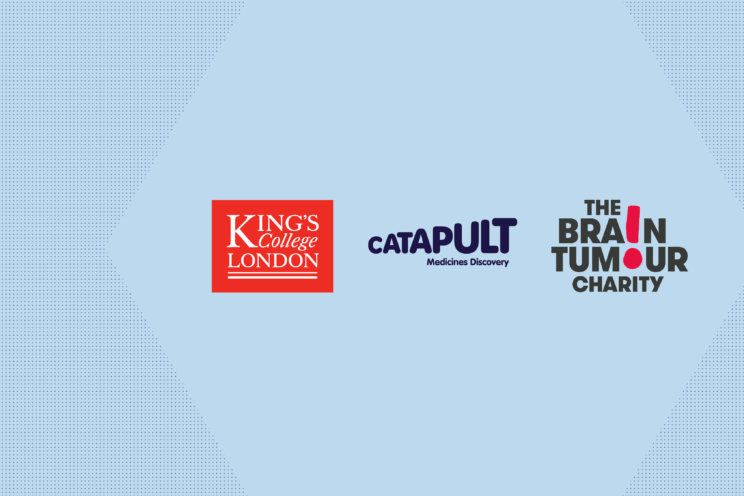Medicines Discovery Catapult (MDC) and King’s College London (KCL) have been awarded £400k funding from The Brain Tumour Charity to develop a groundbreaking new approach to treat glioblastoma, for patient benefit.
Glioblastomas are the most common form of brain cancer and are highly aggressive, with poor survival outcomes. Patients survive on average for just 12-18 months after diagnosis, with only one-third of patients surviving for a year or more. Despite decades of intensive research and a greater understanding of glioblastoma tumour biology, there are still limited effective treatment options.
Spearheaded by KCL and MDC, the project will bring together proprietary technologies to offer a new route to deliver drugs safely and effectively into brain tumours.

Claire Kavanagh’s 19-year-old son, Niall, died in 2021, just three weeks after he was diagnosed with glioblastoma. Claire passionately supports and advocates for efforts like this that bring scientific breakthroughs closer to those who urgently need them, driven by her devastating and unexpected loss.
Claire said:
“Investment in research into brain tumours is so important to help prevent other families from going through the pain and heartbreak of losing loved ones who should be here with us.”
The scientists at MDC and KCL believe they can accelerate progress in glioblastoma research through their collaboration.
Researchers at KCL have developed a novel theranostic (both therapeutic and diagnostic) nanoparticle, ActNano, which can encapsulate multiple anticancer drugs and deliver them safely and effectively into brain tumours when activated by focused ultrasound.
MDC will apply its focused ultrasound capability to the project, as well as an advanced preclinical brain tumour model that incorporates the clinical scenario of tumour resection and recurrence.
The project will run extensive studies of ActNano using these platforms, aiming to measure its targeting accuracy, effects and safety compared with the current standard of care in glioblastoma: temozolomide chemotherapy and neurosurgery. If successful, this will accelerate ActNano and the novel drugs that it will encapsulate into human studies, getting them closer to the clinic and the patients who need them so urgently.
Removing barriers to drug delivery to the brain and improving the translation of early-stage drug discovery data to humans will ultimately accelerate the development of new revolutionary treatments, improving outcomes for people living with glioblastoma.
The Brain Tumour Charity Translational Award launched in 2024 to support the development of new diagnostics, therapeutics, drug delivery mechanisms and devices in brain tumours by funding and linking academics with industry. The collaboration between KCL and MDC is one of the first projects to be funded through the award.
Dr Simon Newman, Chief Scientific Officer at The Brain Tumour Charity, said:
“We have developed our bespoke Translational Award to ruthlessly evaluate and drive the best concepts forward. Our aim is to accelerate success or fail ideas faster if they cannot be translated. Through partnerships, we will develop industry-like standards of drug development to maximise the chances of success and future funding.”
Dr Paul Sharp, Lead Scientist for Translational Imaging at Medicines Discovery Catapult, said:
“Glioblastoma remains one of the most aggressive and challenging cancers, with current treatments having limited impact on survival rates for patients. More needs to be done. Thanks to the support of The Brain Tumour Charity, our new partnership with King’s College London marks a pivotal step forward that will allow us to combine and scale our proprietary technologies. Bringing this transformative technology to patients faster is something the team at MDC is passionate about.”
Dr Maya Thanou, Professor in Pharmaceutical Nanotechnology, King’s College London, said:
“This funding marks a crucial step in advancing ActNano, our precision oncology technology, from the lab towards the clinic. It enables us to conduct the preclinical studies needed to demonstrate its targeting accuracy and to evaluate how it can work alongside existing treatments. This will give our team the opportunity to develop a more precise and less toxic approach that could ultimately improve outcomes for both adult and paediatric patients, bringing us closer to offering real hope where it’s urgently needed.”
Find out more about how MDC’s translational imaging expertise helps accelerate the discovery and development of new medicines here.



